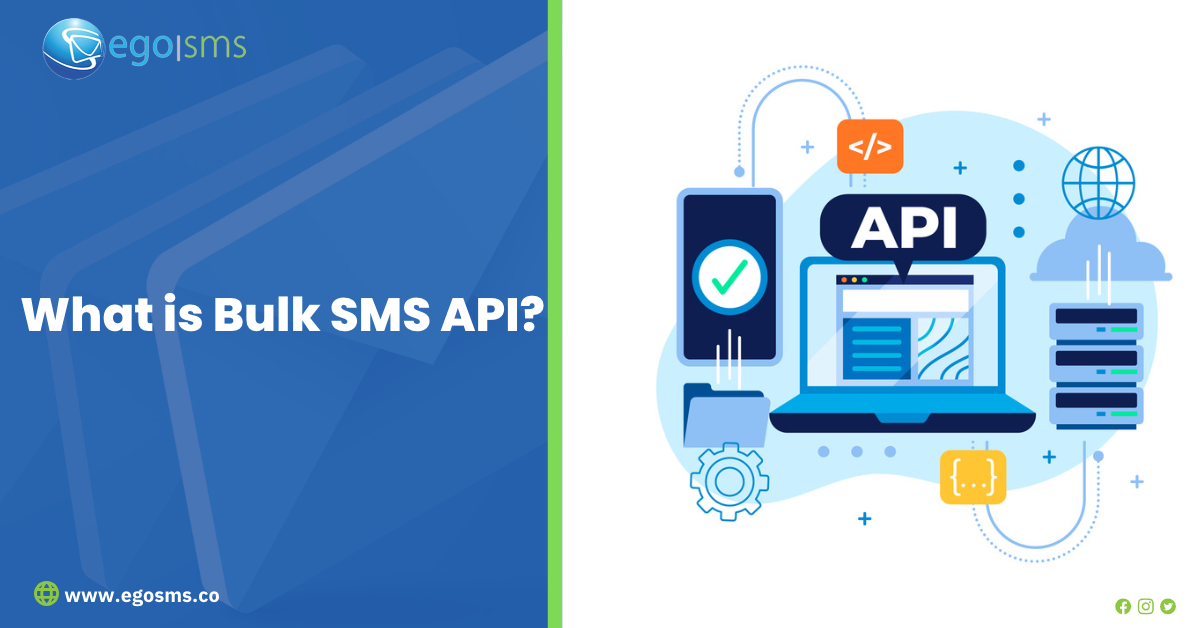
A Bulk SMS API (Application Programming Interface) is a software interface that allows developers to integrate bulk SMS functionality into their own applications, websites, or systems. APIs provide a set of rules and protocols that enable different software applications to communicate and interact with each other.
In the context of bulk SMS, an API allows developers to send a large number of SMS messages to multiple recipients simultaneously, typically by making requests to a third-party SMS service provider’s server. The API provides a standardized way to send SMS messages programmatically, eliminating the need for manual intervention or using a web-based interface.
Using a Bulk SMS API, developers can automate the process of sending SMS messages in bulk, which is useful for various purposes such as marketing campaigns, customer notifications, alerts, reminders, and more. The API typically supports features like sending personalized messages, scheduling messages for future delivery, managing contact lists, tracking delivery status, and receiving responses.
Developers can integrate the Bulk SMS API into their applications using different programming languages like Java, Python, PHP, or any other language that supports HTTP/HTTPS requests. The API documentation provided by the SMS service provider outlines the available endpoints, parameters, and authentication methods required to send SMS messages programmatically.
By leveraging a Bulk SMS API, businesses and developers can streamline their SMS communication processes, reach a large audience efficiently, and incorporate SMS messaging capabilities into their own applications or systems.
Below are a few examples of how to use API messages to in your business:
- Promotional messages: You can send promotional offers, discounts, new product announcements, and marketing messages to your customers.
- Transactional messages: These include order confirmations, shipping notifications, delivery updates, payment reminders, and other transaction-related information.
- Alerts and notifications: You can send important alerts, emergency notifications, system updates, service outage notifications, and critical information to your users.
- Reminders and appointments: You can send appointment reminders, event notifications, reservation confirmations, and other reminders to keep your customers informed.
- One-time passwords (OTPs): Many applications and services use SMS-based OTPs for user verification during registration, login, or password resets.
- Surveys and feedback requests: You can send SMS messages to gather customer feedback, conduct surveys, or request reviews about your products or services.
- Personalized messages: APIs often allow you to personalize the content of your SMS messages by dynamically inserting customer names or other relevant information.
It’s important to note that the exact message types and content you can send may depend on the capabilities and restrictions of the specific Bulk SMS API you are using, as well as local regulations and guidelines regarding SMS communication.
When using a Bulk SMS API, it’s crucial to follow best practices and comply with applicable laws and regulations, such as obtaining proper consent from recipients and providing opt-out options for promotional messages.
Bulk SMS APIs can be utilized by a wide range of individuals, businesses, and organizations who wish to send SMS messages in large quantities. Here are some examples of users who can benefit from using a Bulk SMS API:
- Businesses and enterprises: Companies of all sizes can utilize bulk SMS APIs to send marketing messages, promotional offers, product updates, and notifications to their customers. It allows businesses to reach a large audience quickly and efficiently.
- Marketing agencies: Marketing agencies often manage SMS campaigns on behalf of their clients. They can integrate a Bulk SMS API into their systems to send messages to their client’s customer base, track campaign performance, and generate reports.
- E-commerce platforms: Online retailers and e-commerce platforms can employ bulk SMS APIs to send order updates, shipping notifications, delivery confirmations, and promotional messages to their customers. This helps in enhancing customer engagement and improving the overall customer experience.
- Service providers: Service-oriented businesses such as banks, healthcare providers, travel agencies, and utility companies can utilize bulk SMS APIs to send alerts, appointment reminders, account updates, and service notifications to their customers.
- Mobile applications: Mobile app developers can integrate bulk SMS APIs into their applications to send SMS-based verification codes, password resets, transaction notifications, and other user-related messages.
- Non-profit organizations: Non-profit organizations can employ bulk SMS APIs to send donation appeals, event reminders, volunteer updates, and other important communications to their supporters and members.
These are just a few examples, and the usage of bulk SMS APIs can be tailored to the specific needs of different industries and applications. As long as there is a requirement to send SMS messages in bulk, businesses and individuals from various domains can leverage bulk SMS APIs to streamline their communication processes.
In conclusion, before beginning to send API messages, It is important to make sure you have received consent from the customers permitting you to communicate with them via SMS. It is also important to scrutinise the recipient numbers making sure that the messages sent are to the right recipients. These messages will be customised up to the point of giving out personal information like bank account details and bank transactions so having these sent to the right customers is key. To review API messaging prices in EgoSMS click here. To know how to begin using our API messages visit us here.

